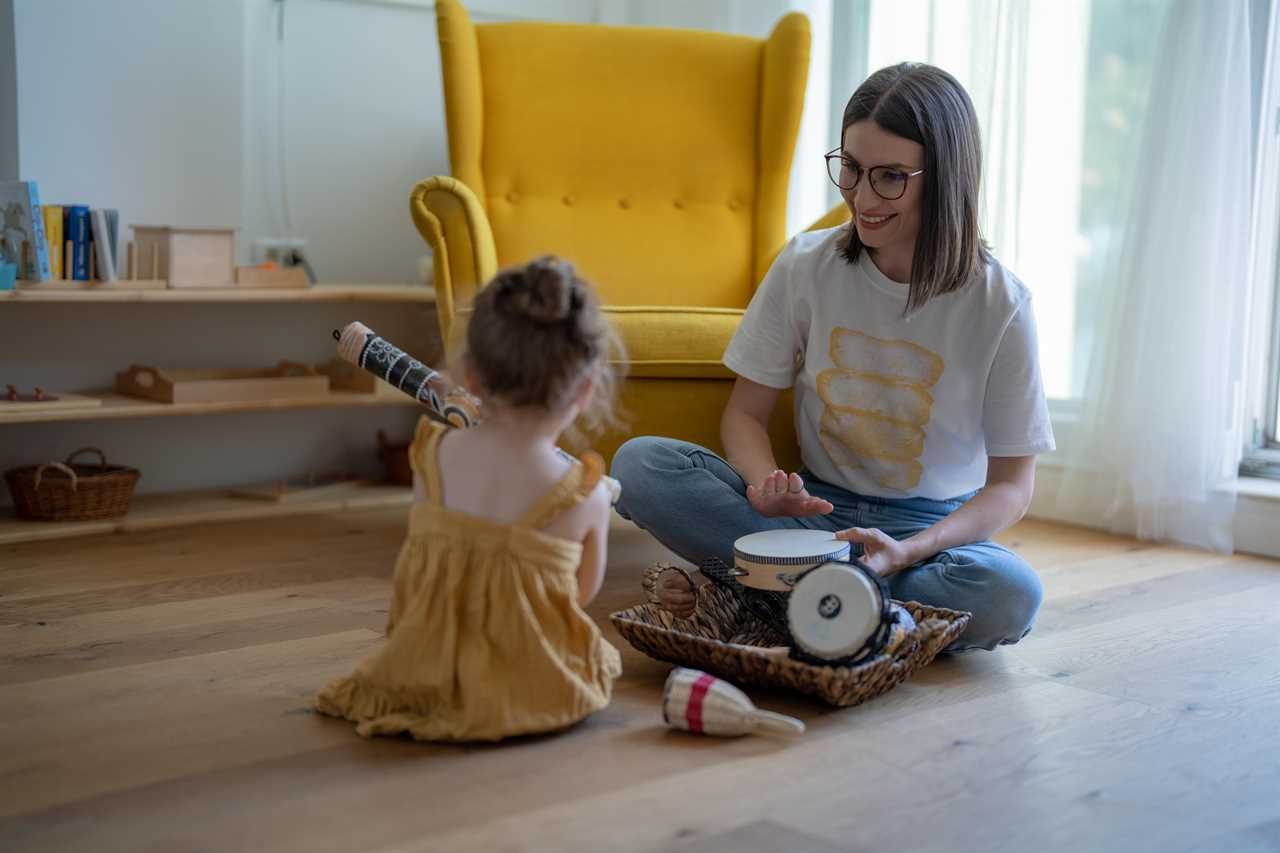Uncover the key to improving motor skill development with Montessori toys! Ideal for those keen on improving their coordination and dexterity, this manual reveals how to make playtime not only enjoyable but also incredibly beneficial. By exploring the world of Montessori toys, you gain access to a variety of activities that are specifically designed to transform every small movement or laugh into progress towards mastery. Who would have thought that stacking blocks, stringing beads, and solving puzzles could have such a significant impact on refining those small muscles and brain connections? It may seem like magic, but it is actually supported by a wealth of research. Prepare to be astonished by the simple yet effective ways Montessori toys can establish a foundation for a lifetime of learning. Continue reading to discover why overlooking this opportunity could result in missing out on a valuable chance for personal growth.
Let’s dive into a world of wooden puzzles, building blocks, shape sorters, and fine motor tools. These toys provide hands-on experiences that engage and challenge young minds.
They promote dexterity, hand-eye coordination, and problem-solving skills. Through sensory play kits, children explore their senses and develop spatial awareness.
Join us on this journey of empowering children through play and watch their motor skills soar.
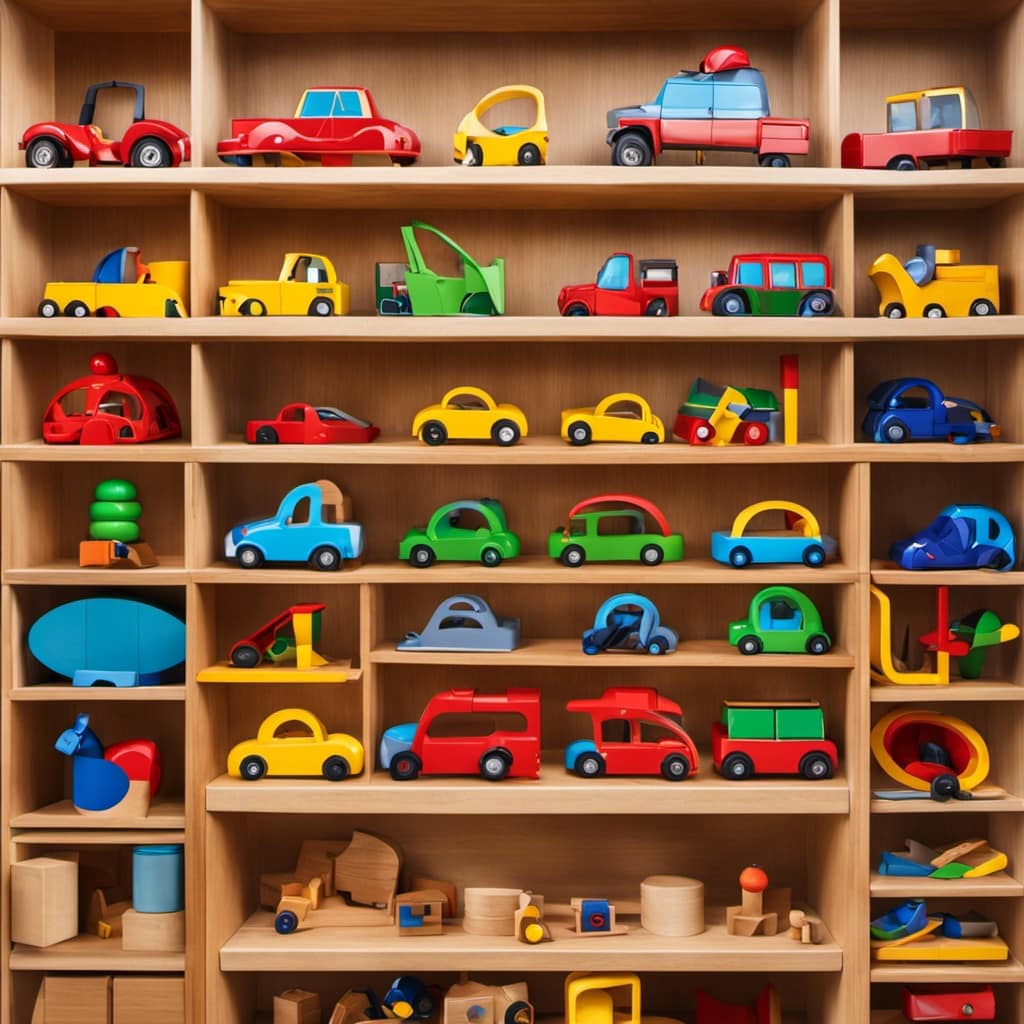
Key Takeaways
- Montessori toys are designed to promote hands-on learning and motor skills development.
- Fine motor skills involve the use of small muscles, such as fingers and hands, and can be developed through activities like playing with blocks or puzzles.
- Gross motor skills involve the use of large muscles, such as legs and arms, and can be developed through physical activities like running, jumping, and climbing.
- Sensory play activities stimulate the senses and promote motor skills development, such as playing with sand or water.
Wooden Puzzles
When it comes to promoting motor skill development, wooden puzzles are an excellent choice for young children as they encourage problem-solving and fine motor coordination.
Wooden puzzles offer several benefits for children’s cognitive development.
Firstly, they enhance problem-solving skills as children learn to analyze and manipulate different puzzle pieces to complete the picture. This process stimulates critical thinking and logical reasoning abilities.
Secondly, wooden puzzles improve fine motor coordination as children grasp and manipulate the pieces, enhancing their hand-eye coordination and dexterity.
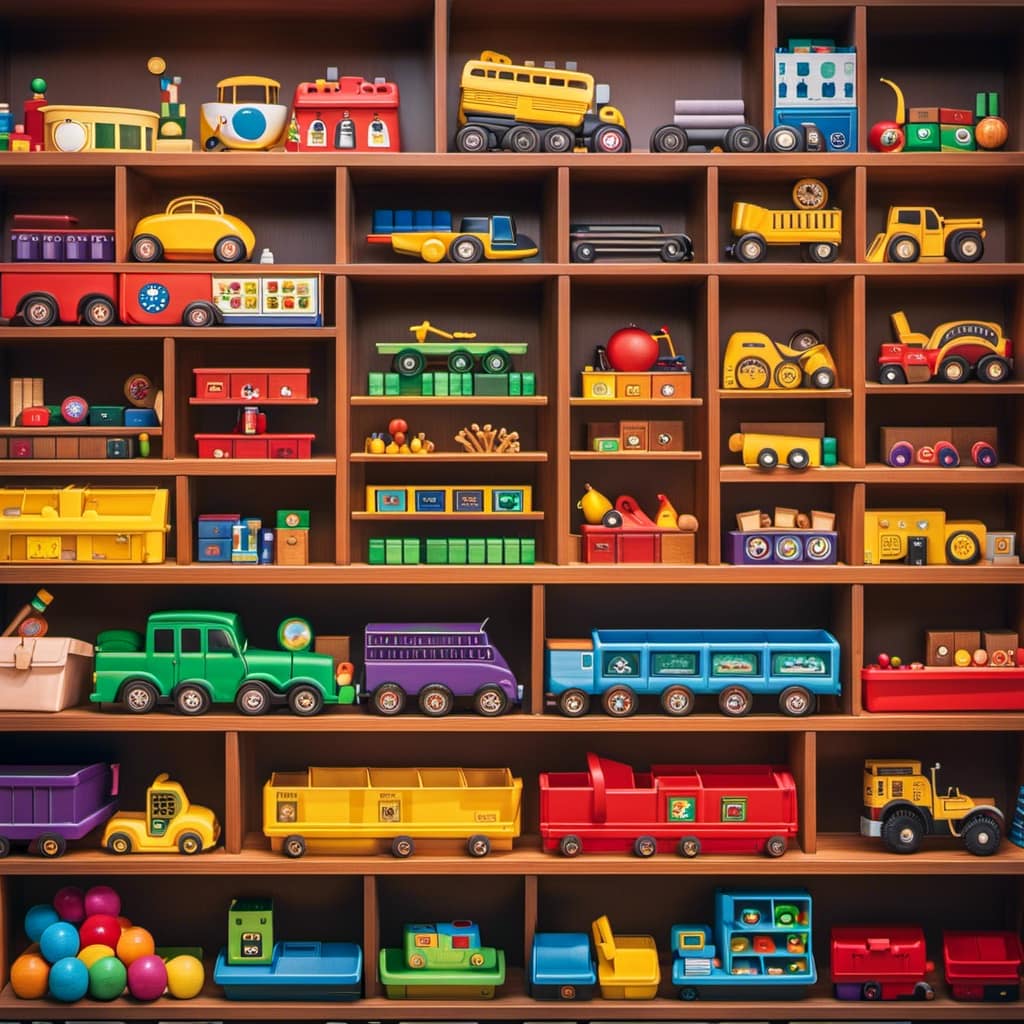
Additionally, wooden puzzles can help develop visual perception and spatial awareness, as children learn to match shapes, colors, and patterns.
When choosing the right wooden puzzle for your child, consider their age and skill level. Start with simpler puzzles and gradually progress to more complex ones to ensure an appropriate level of challenge.
Building Blocks
Building blocks are essential for developing motor skills as they allow us to explore creativity and build structures. Research shows that playing with building blocks helps children improve their hand-eye coordination, spatial awareness, and problem-solving abilities. It also enhances their fine motor skills, such as gripping and manipulating objects.
In addition to the cognitive benefits, building blocks promote social skills and collaboration when children play together, fostering communication and teamwork. They provide a safe and open-ended play experience, allowing children to experiment and learn through trial and error.

To further enhance motor skill development, other Montessori toys like coloring books and stacking rings can be incorporated. Coloring books help improve hand strength and control, while stacking rings develop hand-eye coordination and dexterity.
Shape Sorters
As we continue exploring Montessori toys for motor skill development, one toy that stands out is shape sorters, which frequently engage children in honing their cognitive and fine motor abilities. Shape sorters provide numerous benefits for cognitive development and play a crucial role in early childhood education.
- Benefits of shape sorters for cognitive development:
- Enhances problem-solving skills: Children learn to analyze shapes and figure out how they fit into specific slots, promoting critical thinking and logical reasoning.
- Improves hand-eye coordination: Manipulating and placing shapes into corresponding holes helps improve hand-eye coordination and fine motor skills.
- Develops shape and color recognition: Sorting shapes based on their characteristics helps children learn about different shapes, colors, and patterns.
Shape sorters play a significant role in early childhood education by fostering cognitive skills, hand-eye coordination, and shape recognition. These toys provide a fun and interactive way for children to learn and develop essential motor skills.
Fine Motor Tools
We continue our exploration of Montessori toys for motor skill development, now focusing on fine motor tools that play an essential role in honing children’s hand-eye coordination and dexterity. Fine motor skills are crucial for activities such as writing, drawing, and buttoning clothes. Two popular fine motor tools used in Montessori education are finger painting and play dough.
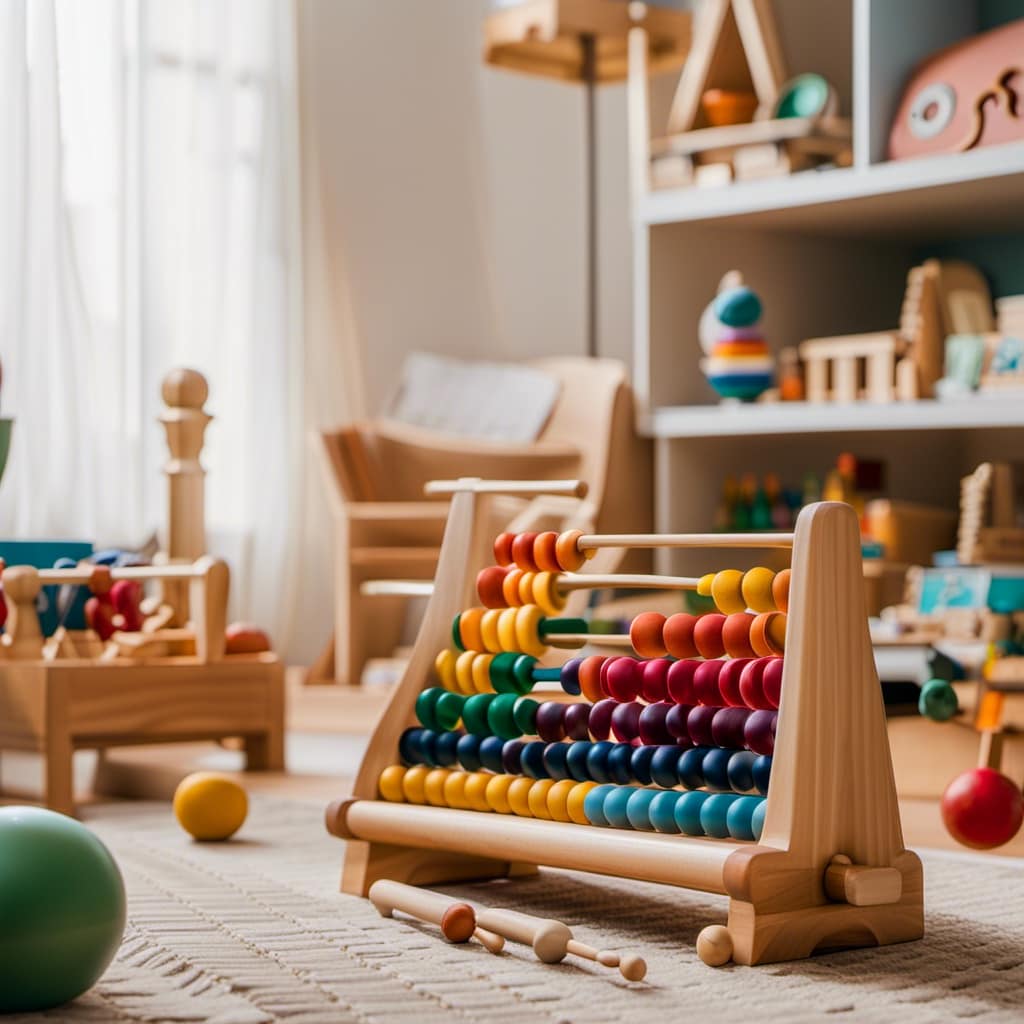
Finger painting allows children to use their fingers to create artwork, improving their hand-eye coordination and fine motor control. It also encourages creativity and self-expression.
Play dough is another valuable tool for developing fine motor skills. Manipulating the dough strengthens the muscles in the hands and fingers, enhancing dexterity and control. Children can roll, pinch, and mold the dough, improving their hand strength and coordination.
By incorporating these fine motor tools into their playtime, children can enhance their motor skills while having fun and expressing their creativity.
| Fine Motor Tools | Benefits | Examples |
|---|---|---|
| Finger painting | Improves hand-eye | Painting with fingers |
| coordination and fine | ||
| motor control | ||
| Play dough | Strengthens hand muscles | Rolling, pinching, molding |
| and enhances dexterity | the dough |
Sensory Play Kits
To enhance motor skill development, our focus now turns to the use of sensory play kits. These kits provide a hands-on and engaging experience for children, allowing them to explore their senses while also developing their fine motor skills.
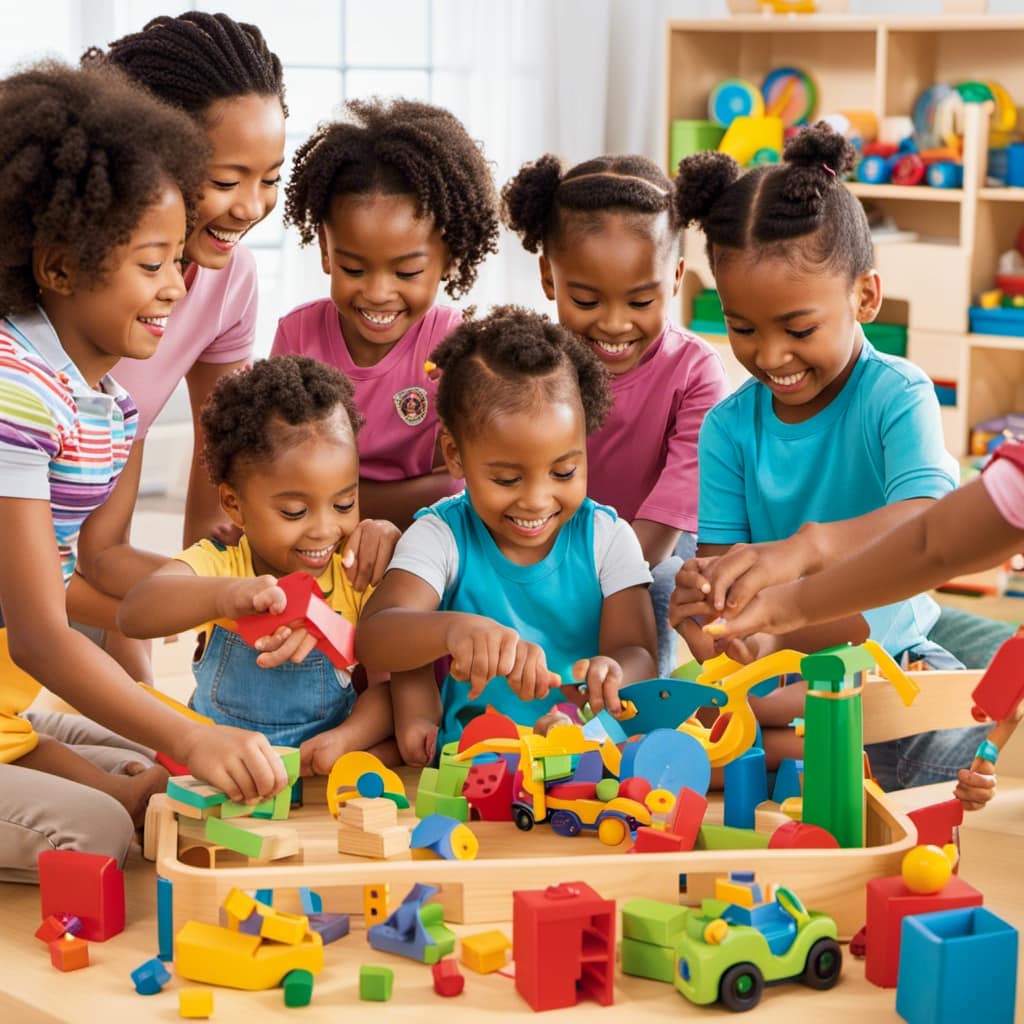
Here are three sensory play ideas that can be incorporated into these kits:
-
Textured materials: Including different textures, such as sand, rice, or fabric, allows children to engage in tactile exploration and develop their sensory awareness.
-
Sensory bins: These bins can be filled with various materials, such as water beads or dried beans, providing children with opportunities for sensory exploration and imaginative play.
-
Sensory bottles: Filling bottles with colorful liquids, glitter, or small objects creates a visually stimulating experience for children and encourages them to focus and manipulate the bottles.
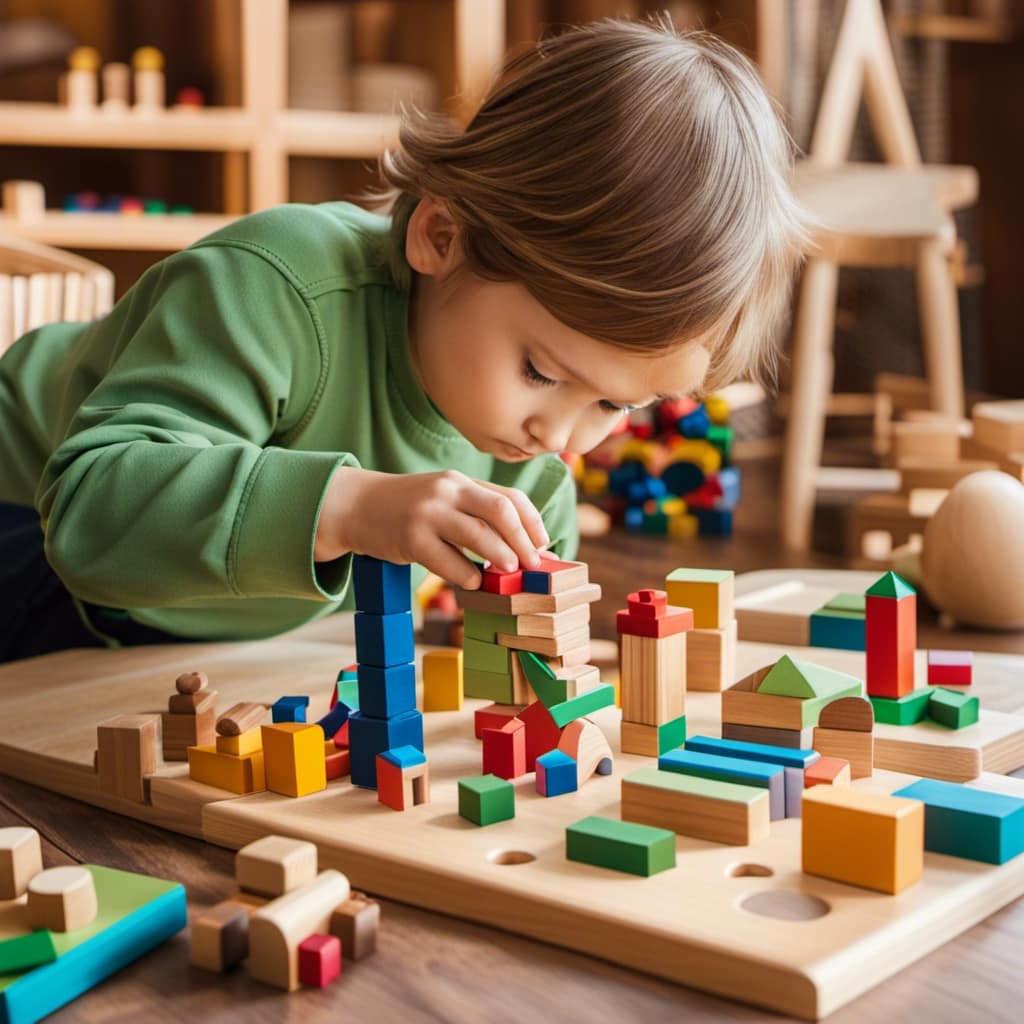
Frequently Asked Questions
How Do Wooden Puzzles Help in Boosting Motor Skill Development?
Wooden puzzles for toddlers and stacking toys play a crucial role in boosting motor skill development. These toys encourage hand-eye coordination, fine motor skills, problem-solving, and spatial awareness, all essential for a child’s overall development.
What Are the Benefits of Playing With Building Blocks for Motor Skill Development?
Playing with building blocks has numerous benefits for motor skill development. Stacking toys help children develop hand-eye coordination, spatial awareness, and problem-solving skills. Play dough also enhances fine motor skills through shaping and molding activities.
How Can Shape Sorters Contribute to the Improvement of Motor Skills?
Shape sorters play a crucial role in enhancing motor skills. They promote hand-eye coordination by requiring children to manipulate and match different shapes. This activity helps develop fine motor skills and spatial awareness.
What Are Some Examples of Fine Motor Tools That Aid in Skill Development?
Fine motor toys, such as Montessori materials, can greatly aid in skill development. For example, a child using tweezers to pick up small objects strengthens their hand-eye coordination and fine motor skills.

How Do Sensory Play Kits Enhance Motor Skill Development?
Sensory play benefits motor skill development by engaging multiple senses and promoting hand-eye coordination. Montessori toys for fine motor skills provide opportunities for children to manipulate objects, improving their dexterity and control.
Conclusion
In conclusion, Montessori toys play a crucial role in boosting motor skill development in children.
Wooden puzzles, building blocks, shape sorters, and fine motor tools help enhance hand-eye coordination, problem-solving abilities, and cognitive skills.
Additionally, sensory play kits provide a stimulating environment for children to explore and develop their senses.
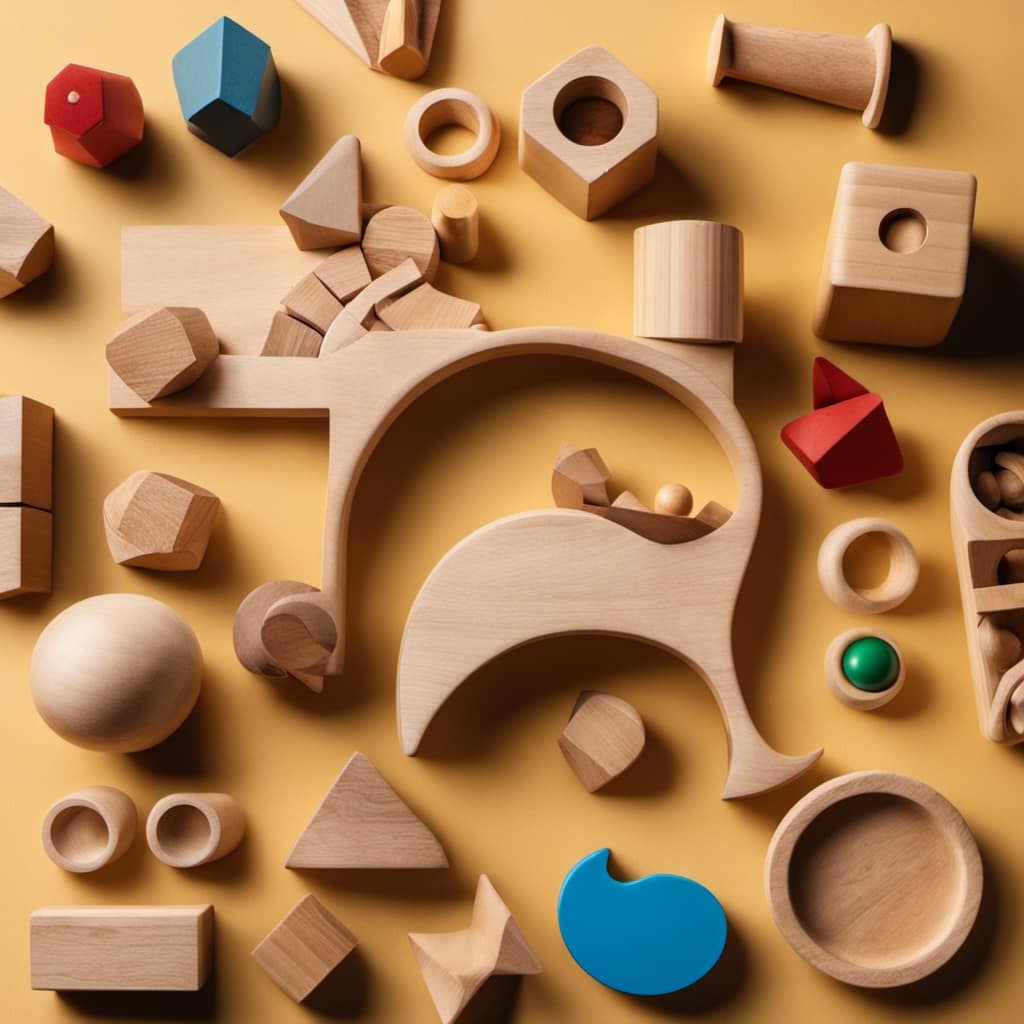
By incorporating these toys into a child’s playtime, parents and educators can support their physical and cognitive growth.
Remember, ‘practice makes perfect,’ and with the right toys, children can strengthen their motor skills effectively.



